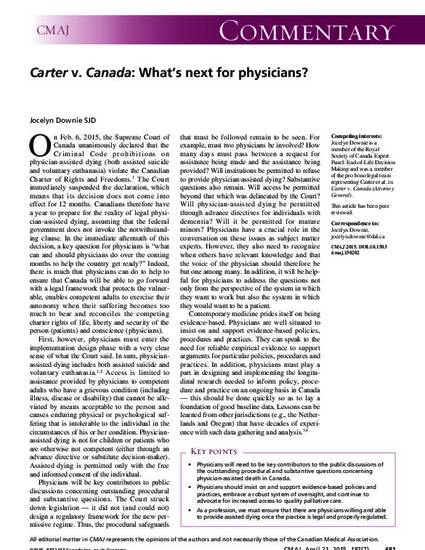
- Carter v. Canada,
- MAID,
- physician-assisted dying,
- assisted suicide,
- voluntary euthanasia
On Feb. 6, 2015, the Supreme Court of Canada unanimously declared that the Criminal Code prohibitions on physician-assisted dying (both assisted suicide and voluntary euthanasia) violate the Canadian Charter of Rights and Freedoms.1 The Court immediately suspended the declaration, which means that its decision does not come into effect for 12 months. Canadians therefore have a year to prepare for the reality of legal physician-assisted dying, assuming that the federal government does not invoke the notwithstanding clause. In the immediate aftermath of this decision, a key question for physicians is “what can and should physicians do over the coming months to help the country get ready?” Indeed, there is much that physicians can do to help to ensure that Canada will be able to go forward with a legal framework that protects the vulnerable, enables competent adults to exercise their autonomy when their suffering becomes too much to bear and reconciles the competing charter rights of life, liberty and security of the person (patients) and conscience (physicians).
